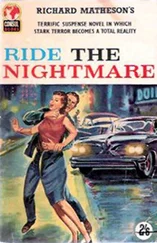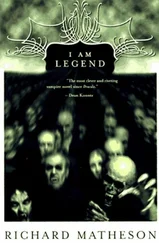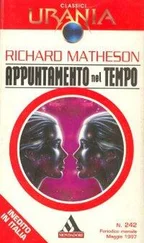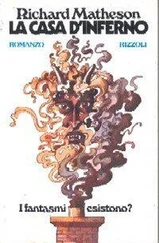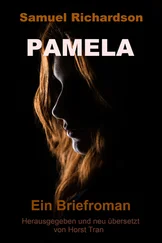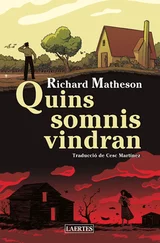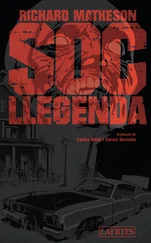Richard Matheson
OTHER KINGDOMS
With all my love
to Ruth Ann,
the one beautiful princess
in my life
What a different view of the world dawns upon us when we open ourselves to the soul-life in Nature.… To do this deliberately… is to experience a quickening that knows no end. It leads through door after door, over threshold after threshold.…
—Marjorie Spock
To begin with, my name is not Arthur Black. My family name is White. My given name is Alexander. The publisher of my twenty-seven novels decided that Alexander White was not an appropriate name for the author of the MIDNIGHT series—choice selections such as MIDNIGHT BLOOD THIRST and MIDNIGHT FLESH HUNGER . Among twenty-four other tasteful items. Accordingly, he gave me the name of Arthur Black. I went along with it. I needed the money. At three thousand dollars a shot—later three-five—I managed to squeeze by.
Despite the questionable tenor of my thirty-year oeuvre, I hesitated to write this book. Why? Because it’s true. No matter the wonders and indescribable terrors (which I have nonetheless attempted to describe, anyway), every incident is factual. You will, undoubtedly, question that statement. Rereading my manuscript, I am tempted to question it myself. Yet my account is true; I swear it. Forget the MIDNIGHT series (assuming you have had the poor judgment and loose change to actually read them). This is not (is not, I emphasize) fiction. Bizarre, incredible, bone-chilling though it may be (and I have tried not to overstate the more grotesque elements), there is not a doubt in my mind that they all took place in the year 1918, when I was eighteen years old.
I am eighty-two years old now—which gives you some idea of how long I waited to write this book.
Arthur Black (as you know me)
February 9, 1982
I was born in Brooklyn, New York, on February 20, 1900. The son of Captain Bradford Smith White, USN, and Martha Justine Hollenbeck. I had one sister, Veronica, younger than I, who died the same year these strange incidents began.
Captain Bradford Smith White, USN, was a swine. There, I’ve written it down after all these years. He was a total swine. No, he wasn’t. He was a sick man. His brain was gnarled—shadow ridden, you might say.
Veronica and I (especially Veronica) suffered greatly at his hands. His discipline was iron based. The Navy spared him from being institutionalized, I believe. Where else could his near-demented behavior be permitted? Our mother, tenderhearted and emotional, died before she was forty. I should say, “escaped” before she was forty. Her wifehood was an extended sojourn in Hell.
* * *
I present a small example:
One day in March 1915, Mother, Veronica, and I received an invitation (an order) to attend a dinner on father’s ship (a supply ship, I recall). None of us wanted to go, but there was scant alternative—Daddy’s ship for dinner or, for refusing, several weeks (perhaps a month) of indeterminate punishment.
So we donned our respectful bibs and tuckers, and were driven to the Navy Yard, there to discover that Daddy’s ship was anchored on the Hudson River, which, with driving winds, was being whipped into minor tsunamis.
Would any husband and father in his right mind have permitted his family to face such a perilous experience? I ask you, would any husband and father in his right mind not have canceled the entire crazy venture and taken his family to a decent restaurant? I answer for you. Of course he would. Did Captain Bradford Smith White, USN, behave as though he was in his right mind? One guess. We were scheduled to have dinner aboard the USS White—Swine, it should have been named. If we all drowned en route—what is it the ruffian set says today?— tough titties . Regrettable but unavoidable.
We stepped, lurchingly, aboard the Captain’s gig—his private launch—and departed. The side awnings were lowered, Dad’s concession to reality, no doubt. The wind, however, was blowing so tremendously that the awnings kept flapping open at their bottoms, spraying us with Hudson River. Needless to say—I say it regardless—the waves were more than choppy; they were semi-mountainous. The gig shuddered and bounced, tilted and rocked. Mother pleaded with the Captain to turn back, but he remained adamant, lips compressed and bloodless. We would be arriving at the ship “toot-sweet”—he actually used the phrase, or, should I say, butchered it? Mother held a handkerchief to her lips, no doubt to prevent losing any prior meals that day. Veronica wept. I take that back; attempted (in vain) to keep from weeping, because the Captain loathed her tears, making it abundantly clear that he did with many a dark critical glance.
Somehow, despite my conviction that we were all destined for the bottom of the river, we finally arrived—still alive but damp—at Dad’s ship, which, dear reader, was scarcely the conclusion of our mal de mer nightmare. There were, you see, no convenient steps to the deck, only an exterior metal ladder, which, because of the leaping waves, was running with water. Up this slip-and-slide companionway climbed the White clan, totally convinced that death of one variety or another—by falling and/or drowning—was imminent. (Actually falling first, then submersion in the briny deep.)
The spotlight of the gig glared on—increasing our blind ascent—what with the ship’s spotlight also on—and Mother went first, assisted (poorly) by a terrified sailor. To my amazement—and disbelieving relief—she neither fell nor submerged, achieving the deck, still damp but unscathed. Veronica went next. At that moment, I summoned a hope for guardian angels. Surrendering completely her effort not to weep and offend the Captain, she labored, assisted, up the puddling ladder, slipping more than once and shedding copious tears and sobs. I followed; gripping the cold ladder railing so rigidly, my hands went numb. No assistance for me. Father either assumed I was strong enough to manage on my own—or else harbored a secret hope that I would tumble to a watery grave and relieve him of an irritating son.
Whatever the case, I climbed alone, clutching the ladder railing with both hands. Above me—I tried not to look up but did, distracted by the wild flapping of Veronica’s skirt, catching sight, at one point, of her underpants—a momentary glimpse of wetness. No surprise. I did the same. I wonder if Mother had, also, suffered alike. The weakness could not possibly have come from Father’s side of the genes. If he had any weakness, it was a total inability to identify with other human beings.
At one point of the death-defying climb, Veronica slipped off the ladder completely, screaming in terror, the high heel of her left shoe (why didn’t she wear mountain-climbing boots?) nicking the top of my head (why didn’t I wear a fireman’s helmet?), which began to drip blood. A chancy moment. Was Veronica to hurtle to the river? Was I to bleed to death?
Neither. Veronica, sobbing, stricken to the core, poor sweet dear that she was, regained her footing, assisted by the sailor who was with her, and was hauled up onto the deck by another sailor, a burly, redheaded, chuckling lout of a man. I followed, and so, to my chagrin, did Captain Bradford Smith White, USN, a thin smile on his granite lips. He was amused by the entire event. I’m sure Mother could have killed him. Ditto. Twice over.
Читать дальше




